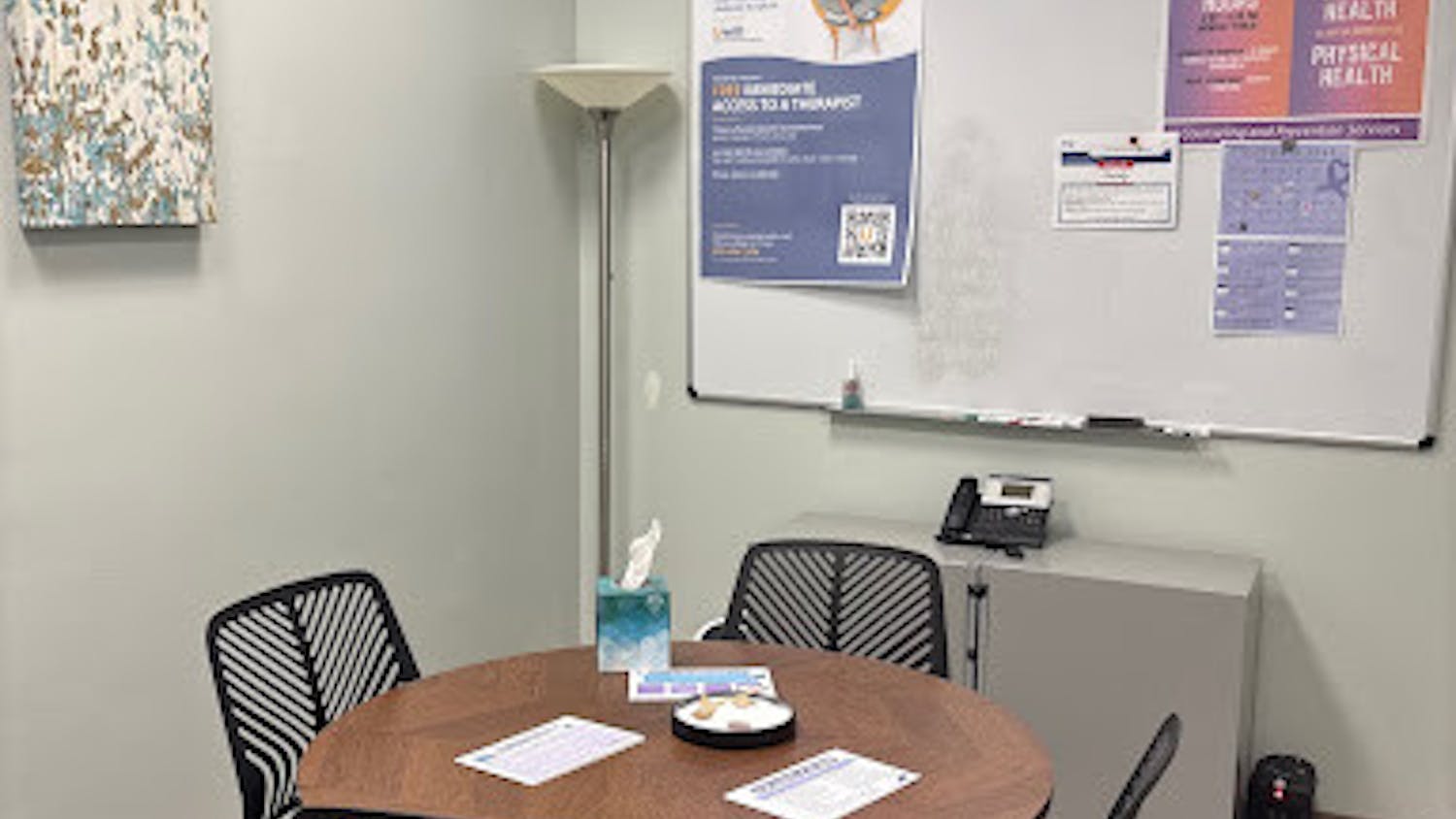Although the fledgling organization Students for Academic Freedom was only recognized a few weeks ago and has only 14 members, it is already creating controversy.
Students for Academic Freedom (SAF) is a nationwide organization concerned with promoting diversity in campus classrooms.
Its Web site, studentsforacademicfreedom.org, states that the organization's main goals are to "promote intellectual diversity on campus" and "to defend the rights of students to be treated with respect by faculty and administrators, regardless of their political or religious beliefs."
"It is appropriate for faculty to want open-minded students in their classes, not disciples," the organization's mission and strategy explains. "Faculty bias is reflected in the curriculum of courses available, in the manner in which they are taught, in readings assigned for classroom study and in discussions only open to one side of a debate."
SAF president and sophomore philosophy major S. Lee Whitesell II said the organization does not necessarily embrace all the same activities as the national organization, because other schools in the country are worse off with a lack of diverse viewpoints than the College. However, he said the group would embrace legislature that would protect students' rights to say their opinion.
The students in the College's organization do not want to feel like they are only hearing one opinion.
"We want to promote a broader range of academic goals," Daniel Beckelman, freshman political science major and SAF member, said. "We want to give a non-partisan look at both sides of issues. Things aren't always just liberal or conservative. There's often a hybrid that doesn't get looked at."
Kevin Kelly, executive director and freshman English major, agrees. "We want as many representations and as wide a variety of ideology as possible," he said.
The members of the organization perceive bias at many campus events. Whitesell, for example, feels that the Progressive Student Alliance's (PSA) open forum on the Iraq war was extremely one-sided.
"It was one sided because all of the professors were 'critical' of the war, and I use critical in quotes because they were blatantly anti-war," Whitesell said. "If the only forum open to us is a gloom and doom hate session, it's not really fair to us," he added later.
Matt Richman, junior history major and PSA member, feels that SAF misunderstood the open forum's advertisements.
"We clearly billed the event as featuring three professors critical of the war, followed by open discussion among audience members," Richman said. "The organizers of the event deliberated the possibility of a pro-war voice on the panel, but ultimately opted to present an anti-war argument from the panel and leave a large amount of time for audience discussion."
Richman also believes that not every group on campus should feel as though they must present both sides of a story.
"Has anyone ever asked the campus pro-lifers to put a stem-cell research proponent on their panels? What about the College Republicans? Should they be forced to feature other parties' candidates at their events?" Richman said. "If the Progressive Student Alliance chooses to present only 'one side' of an issue, it is our prerogative - just as TCNJ Lifesavers or the College Republicans - only give one viewpoint."
Professor of history Alan Dawley feels like all students on campus should have the opportunity to express their views, regardless of political affiliation.
"There is nothing more precious than free speech. We are indebted to generations of rebels, dissenters and activists for their struggles to carve out public space where all views can be aired free from coercion," Dawley said. "All who love freedom welcome open and reasoned debate between liberals, conservatives and all other points of view. That is the essence of 'liberal learning.'"
To help express their viewpoints, SAF would like to bring conservative-leaning speakers such as David Horowitz, president and founder of the Center for the Study of Popular Culture, to the College.
"We want a diverse array of speakers who can present other ideas," Kelly said, that many ideas are not presented because a great number of the speakers who come to campus are Democrats.
"Speakers should bring viewpoints that people don't hear every day," Whitesell added.
Eventually, SAF hopes to create a student's bill of rights to be approved through the Student Government Association. On a larger scale, an academic bill of rights approved by the College and State legislature would list students,' professors' and researchers' rights to hold and be exposed to views that may differ from those of the College or its faculty.
A bill of rights ensures that "institutions of education stay institutions of education as opposed to indoctrination," Whitesell said.
In addition, SAF would like to hold forums in which faculty and students can speak with people who have diverse viewpoints."Our goal is to provide other opinions," Whitesell said. "Ideally, if there were a problem with too many conservatives on campus, we would be trying to bring in liberals."
-Christy Hartigan, Correspondent; Becky Barrett, Features Assistant






